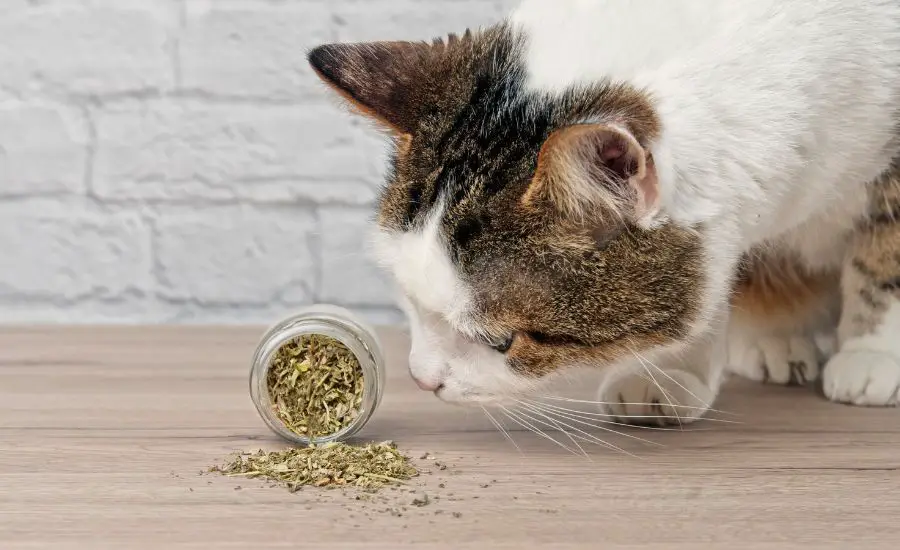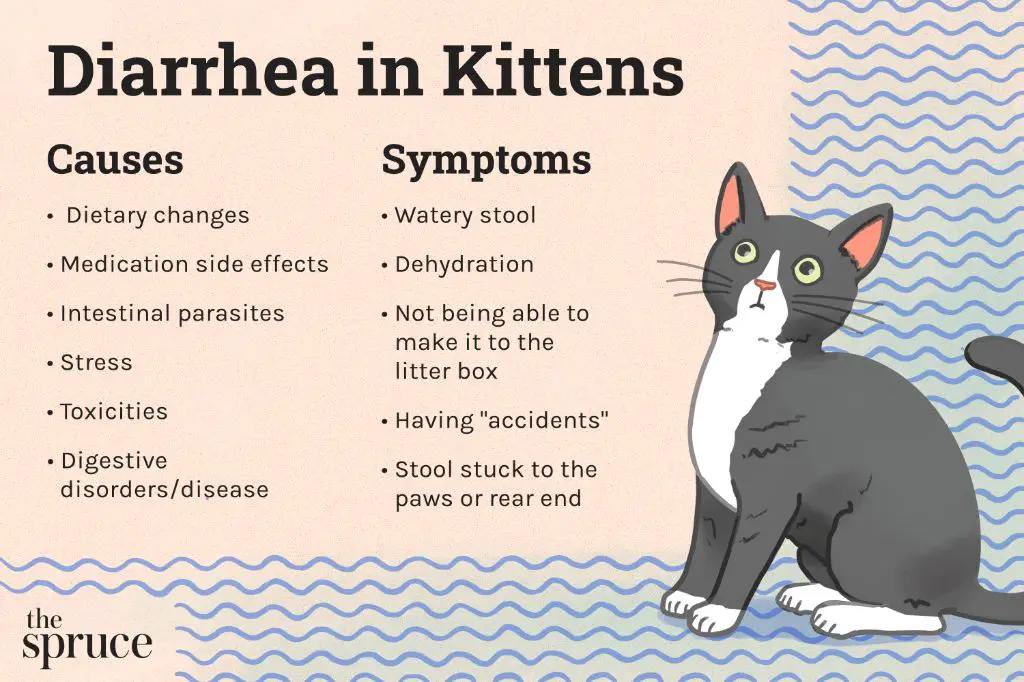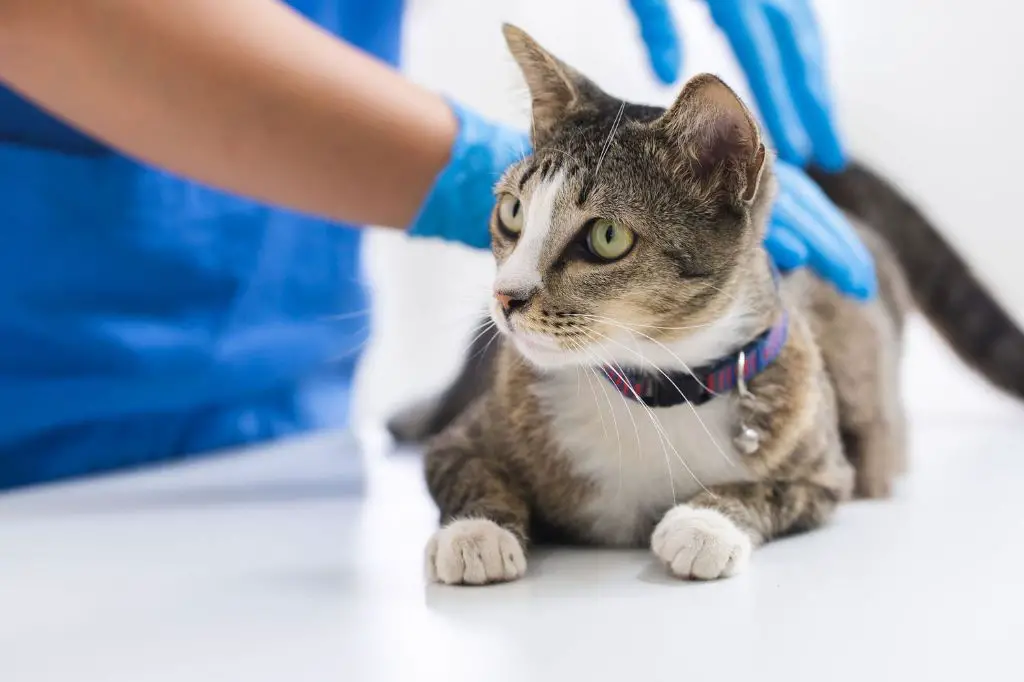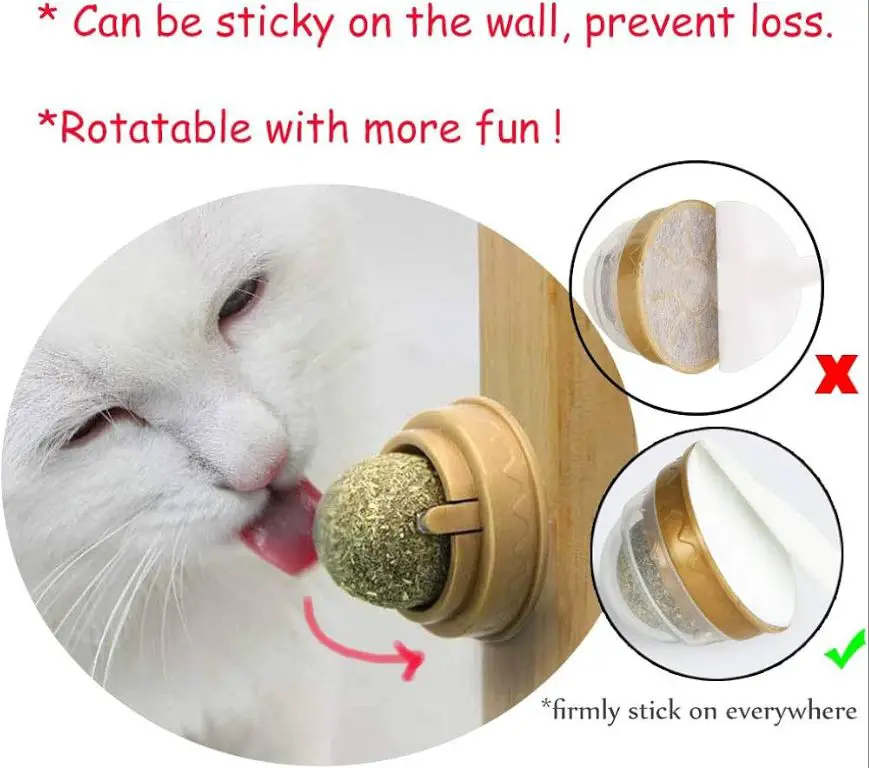What is Catnip and How Does it Affect Cats?
Catnip is an herb in the mint family that contains a chemical called nepetalactone. This chemical triggers a euphoric response when inhaled or consumed by cats (1). Not all cats react to catnip, with only about 50-70% showing a response. Kittens younger than 6 months old also typically do not respond to catnip (2).
For cats that do react to catnip, the effects can include rolling around, flipping over, rubbing, meowing, and general euphoric behavior. The effects of catnip last for 5-15 minutes before wearing off (3). Catnip does not appear to be addictive or habit-forming for cats.
Catnip can be given dried, fresh, as an oil, or even as a toy infused with catnip. It is generally considered safe for cats when given in moderation. But overindulging in catnip can cause mild side effects like vomiting or diarrhea (2).
Sources:
(1) https://www.petmd.com/cat/general-health/what-is-catnip-and-what-does-it-do-cats
(2) https://www.humanesociety.org/resources/crazy-catnip
(3) https://www.aspca.org/news/nipping-catnip-its-effects-felines
Common Catnip Reactions

Catnip produces a range of behavioral effects in cats that owners often find entertaining. The most common reactions to catnip include:
- Playful, crazy behavior like jumping, leaping, and chasing imaginary objects
- Rolling around on the floor
- Sniffing, licking, and chewing on catnip toys or fresh catnip leaves
- A generally euphoric-like state of bliss
According to the Human Society, catnip causes this playful behavior by overstimulating cats’ sensory neurons. The chemical compound nepetalactone in catnip is structurally similar to pheromones found in a cat’s urine marking spots. When cats detect this compound, it binds to receptors in the olfactory system, overstimulating scent and sensory neurons which causes the giddy behavioral response.
Can Catnip Cause Diarrhea?
Catnip itself does not directly cause diarrhea in cats. The active ingredient in catnip, called nepetalactone, binds to receptors in a cat’s nose and has a euphoric effect. Small amounts of catnip are perfectly safe for most cats to enjoy.
However, overindulgence in catnip can potentially cause an upset stomach, nausea, or diarrhea. Consuming large amounts may irritate the stomach and intestines. Diarrhea can result as the body tries to quickly expel the excess catnip (1). The diarrhea is generally short-lived and subsides once the catnip has passed through the system.
Kittens, older cats, and cats with sensitive stomachs may experience diarrhea more readily from catnip. It’s best to introduce catnip slowly and monitor your cat’s reaction. Provide only small amounts at a time. If diarrhea occurs, discontinue catnip until the stool returns to normal.
While catnip itself does not directly cause ongoing diarrhea, the act of eating significant quantities can lead to temporary diarrhea in some cats as a side effect. Moderation is key when giving catnip to avoid intestinal upset.
Other Causes of Diarrhea in Cats
Diarrhea in cats can have many potential causes beyond just a reaction to catnip. Some other common reasons for feline diarrhea include:

Diet change – An abrupt change in a cat’s diet can disrupt the balance of good bacteria in the gut and lead to diarrhea. Gradually transitioning between food brands over 5-7 days can help avoid this.
Eating garbage/spoiled food – Cats who eat garbage or spoiled food can ingest bacteria, parasites, or toxins that irritate the digestive tract and cause diarrhea. Keep trash cans covered and uneaten wet food picked up to avoid this.
Parasites – Intestinal parasites like roundworms, hookworms, or protozoa can infect cats and damage the intestinal lining, leading to diarrhea. Annual fecal tests and prompt deworming treat this cause.
Viral/bacterial infections – Feline panleukopenia virus, salmonella, campylobacter or other pathogens can cause infection and inflammation in the gut, resulting in diarrhea. Veterinary care and medication clear up infectious diarrhea.
Stress/anxiety – Stress, anxiety, or environmental changes like a new home can stimulate the gut-brain connection in cats and trigger diarrhea episodes. Creating a calm environment and routine aids stressed cats.
If your cat has recurring or prolonged diarrhea with no obvious cause like diet change, take them to the veterinarian for an exam, diagnostic tests, and treatment guidance. Prompt diagnosis of the underlying issue helps relieve diarrhea and prevent dehydration or other complications.
Signs of Diarrhea in Cats
There are several common signs of diarrhea in cats that cat owners should watch out for:
- Loose, watery stool – This is the most obvious sign of diarrhea. The stool will appear abnormally loose and may contain more mucus or liquid than normal.
- Urgent need to defecate – Cats with diarrhea will often need to use the litter box more frequently and urgently.
- Abdominal pain – Some cats may cry out or show signs of abdominal discomfort or pain when having diarrhea.
- Dehydration – Diarrhea can lead to dehydration as fluid is lost. Signs include lethargy, dry gums, and loss of skin elasticity.
- Loss of appetite – Cats with diarrhea frequently have decreased appetite or may refuse food entirely.
According to VCA Animal Hospitals, other signs of diarrhea in cats can include vomiting, blood or mucus in the stool, and fever (https://vcahospitals.com/know-your-pet/diarrhea-in-cats). If diarrhea persists for more than a day or two, or is accompanied by concerning symptoms, veterinary attention is advised.
When to See the Vet for Diarrhea
Diarrhea that lasts for more than 24 hours can be cause for concern in cats. According to Tufts University’s Catnip newsletter, if a cat continues to have diarrhea for more than a day or two, it’s a good idea to have the cat seen by a veterinarian for evaluation.
There are several signs that may indicate a need for prompt veterinary attention for a cat with diarrhea:

- Diarrhea lasting more than 24 hours (Tuftscatnip.com)
- Lethargy or signs the cat is in pain or discomfort
- Signs of dehydration – dry gums, sunken eyes, weakness, etc.
- Blood or mucus in the stool
Cats can become dehydrated quickly when they have ongoing diarrhea. According to VCA Animal Hospitals, if a cat has frequent liquid stools for more than two days, a veterinary visit is recommended. The veterinarian can assess the cat’s health, check for signs of dehydration, and determine if testing is needed to find the underlying cause of the diarrhea.
Prompt treatment for diarrhea and dehydration can help prevent more serious complications. Pet owners should monitor cats closely when they have diarrhea and call their vet right away if the cat seems very ill or lethargic.
Treatment for Diarrhea
If your cat has diarrhea, the first step in treatment is usually to withhold all food for 12-24 hours to give the gastrointestinal tract a chance to rest and recover. After this fasting period, a bland, easily digestible diet such as boiled chicken and rice may be introduced in small portions.
It’s also important to ensure your cat stays hydrated when dealing with diarrhea. Providing supplemental fluids and electrolytes can help replenish what is being lost. Your vet may recommend specific electrolyte supplements or subcutaneous fluids.
If an infection is causing the diarrhea, medication may be prescribed. Antibiotics, antiprotozoals, or anthelmintics could be used depending on the type of infection present.
In some cases, a permanent diet change using a prescription gastrointestinal food or hydrolyzed protein diet may be needed if food allergies or sensitivities are contributing to diarrhea.
Probiotics can also help restore healthy gut flora and are often recommended. Your vet can suggest an appropriate probiotic supplement.
Sources: https://vcahospitals.com/know-your-pet/diarrhea-in-cats, https://www.petmd.com/cat/care/cat-diarrhea-5-treatment-options-you-should-try
Preventing Diarrhea in Cats
There are several steps you can take to help prevent diarrhea in cats:
Provide a balanced diet. Make sure your cat’s food has the right blend of protein, fat, carbohydrates, vitamins and minerals. Avoid sudden diet changes or feeding people food, which can upset your cat’s stomach.
Give probiotics. Probiotic supplements can help populate your cat’s gut with beneficial bacteria to support healthy digestion. Ask your vet for a probiotic formulated for cats.
Avoid diet changes. Switching cat foods suddenly or feeding table scraps can disrupt digestion. Transition gradually between foods over 5-7 days.
Reduce stress. Stress is a common cause of diarrhea in cats. Try to minimize changes to your cat’s routine or environment that could be stressful.
Keep the litter box clean. Cats don’t like using a dirty litter box. Scoop waste daily and empty the box completely every 1-2 weeks.
Safely Giving Catnip
Catnip can be a fun, enjoyable treat for cats when given properly and in moderation. Here are some tips for safely giving your cat catnip:
Use catnip sparingly as an occasional treat. Giving too much catnip too often can reduce its effect over time. Limit catnip to once or twice a week for most cats.
Give your cat access to catnip, then remove it after 15-30 minutes. Allowing unlimited access can lead to overindulgence. Put catnip away to preserve its novelty.

Choose organic, high-quality catnip. This ensures purity and safety. Dried catnip retains its potency better than fresh catnip.
Avoid catnip “overdose.” Signs are hyperactivity, drooling, and disorientation. Remove access immediately if these occur.
Catnip is generally very safe, but always supervise your cat during use. Ensure your cat doesn’t eat too much catnip or have access for prolonged periods.
With sensible precautions, catnip can be an enjoyable experience for your cat. Use it sparingly and pay attention to your cat’s reaction.
The Bottom Line
Catnip itself does not directly cause diarrhea in cats. The active ingredient in catnip, called nepetalactone, binds to receptors in a cat’s nose and has a feline-specific, euphoric effect. While overindulging in catnip may cause an upset stomach, the catnip itself does not contain anything that would induce diarrhea.
Some cats may experience loose stools if they eat too much catnip. This reaction is not caused by the catnip itself, but rather eating more than their digestive system can handle. Think of it like eating too much rich food – it may cause temporary stomach upset, but the food itself is not toxic.
If your cat has ongoing diarrhea or shows any signs of illness beyond an upset stomach, it’s important to contact your veterinarian. Persistent diarrhea could indicate a more serious health issue unrelated to catnip. Don’t try to treat it at home without professional guidance.
Overall, catnip is safe for cats to indulge in moderation. Make sure your kitty doesn’t overdo it and avoid giving catnip if diarrhea is already present. But otherwise, let your feline friend enjoy this special herb and monitor for any stomach upset.

